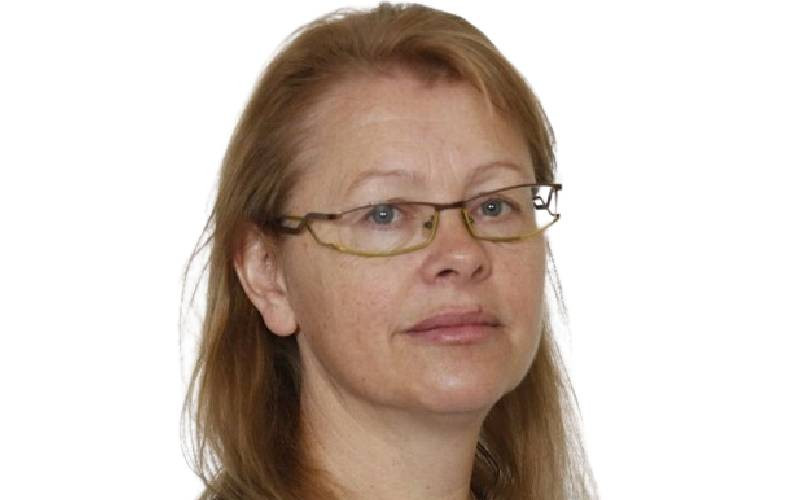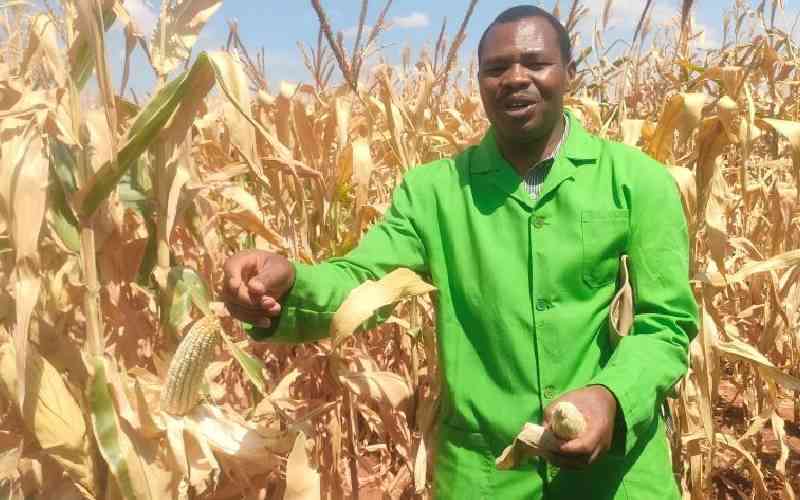Scientists insist the country has an effective mechanism to regulate Genetically Modified Organisms (GMOs) to ensure safety contrary to a statement by Health Cabinet Secretary James Macharia citing lack of adequate biotechnology structures.
Kenya University Biotechnology Consortium Secretary General Joel Ochieng said the biotech community was saddened by Mr Macharia's statement, which they insist will misinform the Cabinet that is to decide the fate of the ban on GMOs.
Dr Ochieng, who is also a senior researcher at the University of Nairobi, College of Agriculture and Veterinary Science under the Agricultural Biotechnology Programme, said four regulations that implement the Biosafety Act have been gazetted to ensure compliance with all activities undertaken within a field.
"GMOs are monitored from development to consumption, and the National Biosafety Authority has inspectors in all key areas such as ports of entry, field trials, and along product value chains to ensure compliance. Further, the Kenya Bureau of Standards (Kebs) has developed a standard for market surveillance to reinforce efforts on compliance," he said.
He said Kenya had existing legal, human and infrastructural capacity to manage GM foods.
International Service for the Acquisition of Agri-biotech Applications Director Margaret Karembu said reputable international organisations such as the European Commission, the US National Academy of Sciences and the World Health Organisation have assessed biotech crops and found them to be safe and beneficial to the global food supply.
Scientific evidence
In 2011, the European Commission released a compendium of 50 research projects on the safety of biotech foods over the last decade. In addition, the European Commission funded research from 130 projects involving 500 independent research groups over 25 years, concluding that there is no scientific evidence of food safety risks for biotech foods, she said.
And delegates from 30 countries from around the world attending an international Agri-biotech and Biosafety Communication conference in Nairobi have asked the Government to lift a two-year ban on GMO imports. They also resolved to step up measures to demonstrate how agricultural production challenges can be tackled using biotechnology, and how it can directly contribute to food and nutrition security, poverty alleviation, job creation and sustainable economic development.
Addressing the delegates comprising farmers, scientists, policy makers, private sector, the media and science communicators, Industrialisation Principal Secretary Wilson Songa emphasised the role of agricultural biotechnology in propelling the country towards prosperity.
 The Standard Group Plc is a
multi-media organization with investments in media platforms spanning newspaper
print operations, television, radio broadcasting, digital and online services. The
Standard Group is recognized as a leading multi-media house in Kenya with a key
influence in matters of national and international interest.
The Standard Group Plc is a
multi-media organization with investments in media platforms spanning newspaper
print operations, television, radio broadcasting, digital and online services. The
Standard Group is recognized as a leading multi-media house in Kenya with a key
influence in matters of national and international interest.
 The Standard Group Plc is a
multi-media organization with investments in media platforms spanning newspaper
print operations, television, radio broadcasting, digital and online services. The
Standard Group is recognized as a leading multi-media house in Kenya with a key
influence in matters of national and international interest.
The Standard Group Plc is a
multi-media organization with investments in media platforms spanning newspaper
print operations, television, radio broadcasting, digital and online services. The
Standard Group is recognized as a leading multi-media house in Kenya with a key
influence in matters of national and international interest.








